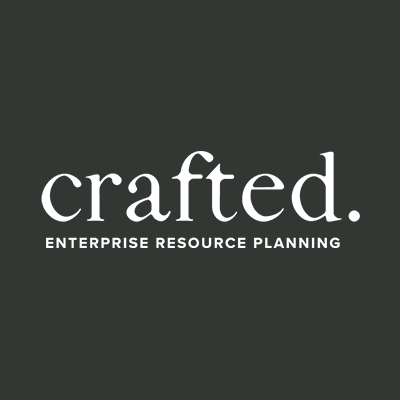So much of every day business is done through tailored software. From running human resources and payroll there is a lot of nuance on how to manage data and make sure things run smoothly.
Breweries can be different from other small businesses with additional licensing and reporting so having the right software is paramount.

Innovation featured expert topic supported by Crafted ERP
Find out why top wineries, distilleries and breweries choose Crafted ERP as their business management platform. Crafted is the only true end-to-end, industry-specific solution, built by head brewers, head distillers and winemakers as a single, unified platform that can expand to fit whatever scale you're ready to take it to.
All About Beer editor John Holl spoke to Audra Gaiziunas, the Owner of Brewed For Her Ledger, an Asheville NC-based consultancy focused on providing financial guidance and leadership to the craft beverage community.
She is currently the CFO of Crooked Stave, has served as CEO of Bhramari Brewing Company 2016-2020, is an owner in Asheville-based beverage company DSSOLVR, and has worked with 300+ brewery clients over the past decade.
John Holl: When it comes to HR, payroll, and other aspects of the business what are some of the things you would encourage small breweries to be thinking about?
Audra Gaiziunas: It’s not just the practicality of the software, but also who runs those applications. In a small business you need to make sure that not only the company can handle running a brewery but also that someone in the company knows how to work the software.
Can you sync with QuickBooks? Can you sync financial management system to a chart of accounts?
Make sure that the payroll software has the capability to distinguish between the various expense sub-categories. Can it group production people in a production wages line item?
Can the wages for the kitchen be grouped in its own line in the chart of accounts? These are the sorts of questions to ask in advance. The payroll companies usually create a journal entry for you so you don’t have to do it out on your own.
So vetting each one of these payroll companies, showing them your chart of accounts and asking them to map their journal entry that they’re going to provide you to match up with your categories.
This way you don’t just have one general journal entry, you can actually separate it out by thefunctionality that that person has within the brewery.
But I would ask each potential provider about that sync functionality. And to what degree will they work with you in customizing that journal entry every single payroll and whether there’s an additional costs involved with that or not?
John Holl: What about integrating other parts of the business?
Audra Gaiziunas: Ask how each plug-in, each offering fits in with your core slate of three data repositories – financial, inventory, and point of sale. Once you have selected software for each of those functions, and if you have any other ancillary databases or applications that you’re going to be using, ask each one of those vendors how it slots in with it does it sync with it is does there have to be a separate API or plugin that needs to be created in order for this functionality to occur?
Who supports that plug in? Who supports that functionality? If it breaks? Where do I go? What if it doesn’t sync correctly? Where do I go? Who’s going to support me? What kind of support turnaround time do I have?
John Holl: There’s a lot of questions to ask.
Audra Gaiziunas: It doesn’t have to be exciting. It just has to work.

